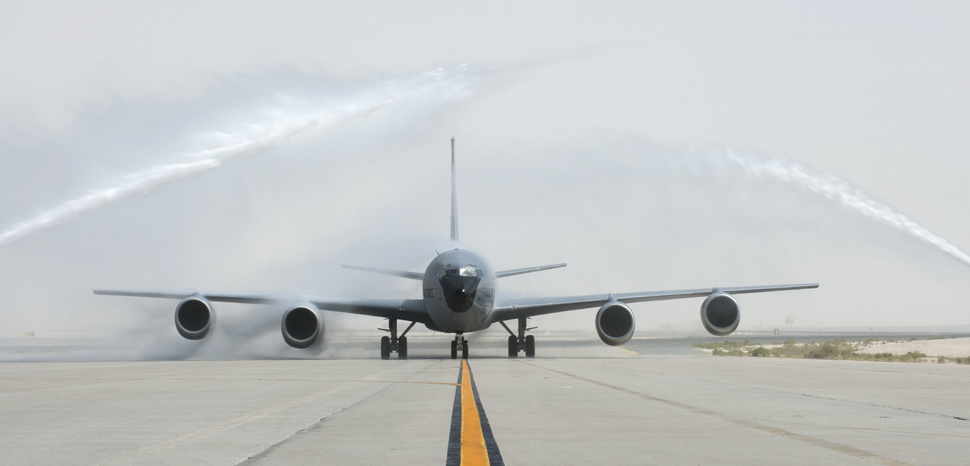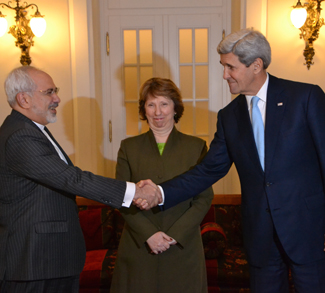Faced with resurgent ‘great power’ rivals, the United States must realign its Middle East posture. But decades-long entanglements and logistical issues make that much easier said than done, as highlighted by recent events.
In early October, US President Donald Trump ordered his troops to leave northeast Syria. Trump’s abrupt retreat earned him substantial international criticism, with many complaining it left the Kurdish Syrian Democratic Forces (SDF) at the mercy of the Syrian government (backed by Russia and Iran) and Turkey.
The pullout has since been scaled back, but the damage has largely been done. A number of ISIS fighters have escaped custody, the Kurds have been forced to leave a 30 kilometre “safe zone” inside Syrian territory, and Russian military forces have entered what used to be American bases.
What’s more, American troops’ chaotic departure from Syria is symptomatic of broader challenges facing the US military as it shifts its posture in the region to face renewed rivalry with Russia and China.
With friends like these …
US policy goals would be greatly helped by stable allies in the oil-rich region. Unfortunately, however, since Trump’s inauguration, America’s Middle Eastern partners – rather than serve as dependable proponents of US foreign policy – have increasingly taken unilateral action in a range of sensitive areas.
In 2017, Saudi Arabia and the United Arab Emirates blockaded and even reportedly planned to invade Qatar. While Trump has built strong relations with Riyadh, Qatar is an equally important US ally and host to America’s vast al-Udeid airbase, where huge sums of money have reportedly been spent to upgrade and expand facilities. The regional spat put the base in a precarious position.
Similarly, the aftermath of the failed 2016 coup d’état in Turkey saw relations with the US deteriorate, with Ankara subject to economic and arms sanctions following the imprisonment of Pastor Andrew Brunson and acquisition of the Russian-made S-400 missile system. Relations between the two countries have since worsened, with Trump recently warning Erdogan in a letter to not be a “tough guy” or a “fool” in northern Syria. While a 120-hour ceasefire was agreed to allow for a Kurdish withdrawal and Trump subsequently lifted all sanctions, there may be rocky sailing ahead yet for relations between Washington and Ankara: Erdogan warned that he would not forget the undiplomatic letter.
Turkey’s incursion in northern Syria poses another headache for US policymakers, who must decide whether to withdraw nuclear weapons hosted at the country’s Incirlik Air base to prevent them being used as leverage by Erdogan. If that happens, it could irreparably damage the countries’ relations.
A logistical nightmare
Smaller-scale issues are also posing difficulties, such as the years-long nightmare the US has faced in finding reliable contractors on the ground to supply food and water for its troops in Kuwait, Iraq, Syria and Jordan.
Last month, Kuwaiti port authorities seized a compound of a million square meters illegally occupied by the Kuwait and Gulf Link Transport Corporation (KGL), a company chosen to fulfil a $138 million-a-year contract providing food and water for US troops stationed in Kuwait, Iraq, Syria and Jordan.
To make matters worse, there’s every indication that KGL might have mislead the US government about its right to occupy the compound and warehouses to get the contract in the first place.
Moreover, KGL has been accused by policymakers, including U.S. Senator Marco Rubio, of setting up a “ghost structure” to conduct business with two companies, the Islamic Republic of Iran Shipping Lines (IRISL) and Valfajr, in violation of US sanctions.
KGL has spared no expense pushing back against the various accusations leveled at the firm—it has spent millions on a lobbying blitz to free two of its former executives from Kuwaiti prison, where they face embezzlement charges.
The bigger picture
These logistical problems, as well as the Trump administration’s complicated relationship with regional powerhouses like Saudi Arabia and Qatar, hinder US efforts to shift its focus from networked military groups to adversarial nation states like Russia and China. And there is a great deal of work to be done. According to a Pentagon report, US preparedness in moving personnel and supplies has deteriorated since the Cold War, while the Joint Logistics Enterprise ‘has suffered neglect and chronic underfunding’, leaving it unable to efficiently mobilise troops and supplies for overseas deployments. Without ‘proactive recapitalization of the Organic Surge Sealift Fleet, the Army will face unacceptable risk in force projection capability beginning in 2024’, according to the report.
What’s more, the report verifies findings from a 2018 National Defense Strategy, which concludes that the US would endure a “decisive military defeat” in a conventional conflict with Russia or China, as decades of stable logistics operations have lulled the Pentagon into a false sense of security over US forces’ readiness.
Losing ground
America’s rivals have built significant inroads in the region. Beijing and Moscow are a growing presence in Saudi Arabia, that long-time bulwark of US foreign policy. Russia has become a major regional energy player via its production coordination with OPEC+ states, providing Riyadh with what the US could not: upward pressure on oil prices. Meanwhile, China has enhanced relations with the Kingdom through the mutual transfer of technology and capital for crude resources.
Both countries have also courted Saudi Arabia in another traditional US stronghold: arms sales. Described as “significant and alarming”, China has reportedly sold ballistic missile technology to Saudi Arabia. Following the attack on Aramco facilities, Moscow offered Riyadh the S-400 system.
The Middle East will always be a core focus of US foreign policy. However, Washington must focus on the bigger picture in the region, developing strong alliances in its efforts against its global rivals and finding dependable logistics partners. Otherwise, its problems will only deepen – in the Middle East and across the world.
The views expressed in this article are those of the authors alone and do not necessarily reflect those of Geopoliticalmonitor.com or any institutions with which the authors are associated.




